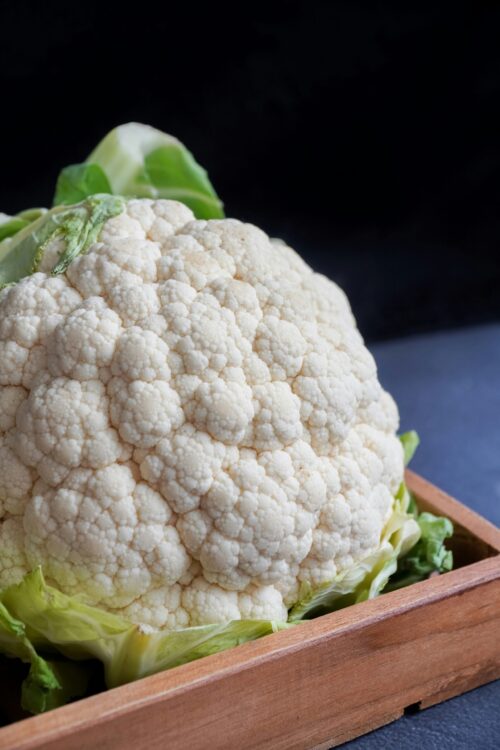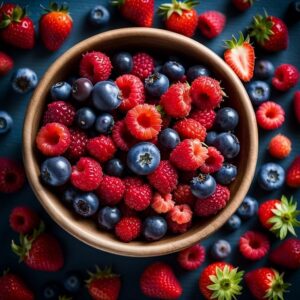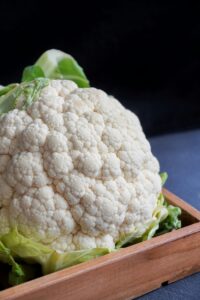
If you know what’s good for you, you’re more likely to do the right thing.
Perhaps you need a refresher on just what’s good for you…particularly because your nutritional needs are changing. Here’s a list of nutrient-dense foods that provide essential vitamins, minerals, and protein without being high in calories:
Leafy Greens: Spinach, kale, Swiss chard, and other leafy greens are rich in vitamins A, C, and K, as well as folate and minerals like iron and calcium. They are low in calories and can be incorporated into salads, smoothies, or sautéed dishes.
Broccoli: Broccoli is a cruciferous vegetable packed with vitamins C and K, folate, and fiber. It’s also a good source of protein relative to its calorie content.
Berries: Berries such as strawberries, blueberries, and raspberries are loaded with antioxidants, vitamins, and fiber. They are low in calories and can be enjoyed fresh, frozen, or added to yogurt, oatmeal, or smoothies.
Greek Yogurt: Greek yogurt is high in protein and calcium, which are important for muscle health and bone strength. Opt for plain, low-fat or non-fat varieties to keep calories in check, and add your own flavorings like fresh fruit or honey.
Eggs: Eggs are a complete protein source and contain essential nutrients like vitamins D, B12, and choline. They are relatively low in calories and can be prepared in various ways, such as boiled, scrambled, or as an omelet.
Quinoa: Quinoa is a nutritious whole grain that is high in protein, fiber, and essential amino acids. It’s also a good source of vitamins and minerals like magnesium, iron, and zinc.
Legumes: Beans, lentils, and chickpeas are excellent plant-based sources of protein, fiber, vitamins, and minerals. They are low in fat and calories, making them a filling and nutritious addition to salads, soups, or stir-fries.
Salmon: Salmon is rich in omega-3 fatty acids, protein, and vitamin D. It’s a nutrient-dense option for incorporating healthy fats and protein into your diet without excess calories.
Nuts and Seeds: Almonds, walnuts, chia seeds, and flaxseeds are nutrient-dense foods that provide healthy fats, protein, fiber, vitamins, and minerals. Although they are calorie-dense, small portions can provide a satisfying and nutritious snack.
Tofu: Tofu is a versatile plant-based protein that is low in calories and high in protein. It’s also a good source of iron, calcium, and other essential nutrients. Incorporate tofu into stir-fries, salads, or soups for a nutritious boost.
What’s Good for You and Versatile, Too? Cauliflower!
Cauliflower: Cauliflower is a versatile vegetable that is low in calories and high in fiber, vitamins C and K, and folate. It can be roasted, mashed, or used as a low-carb alternative to grains in dishes like cauliflower rice or pizza crust.
Bell Peppers: Bell peppers are rich in vitamins A and C, as well as antioxidants like beta-carotene. They are low in calories and can be enjoyed raw in salads, sliced for dipping, or cooked in stir-fries and fajitas.
Mushrooms: Mushrooms are a nutrient-dense food that provides vitamins, minerals, and antioxidants. They are low in calories and can be added to soups, omelets, or grilled as a side dish.
Asparagus: Asparagus is a nutrient-packed vegetable that is low in calories and high in fiber, folate, and vitamins A, C, and K. It can be roasted, grilled, or steamed and makes a delicious addition to salads, pastas, or stir-fries.
What’s Good for You and Surprisingly Great as a Tasty Filler for Casseroles? Cottage Cheese!
Cottage Cheese: Cottage cheese is a low-calorie, high-protein dairy product that is rich in calcium and other essential nutrients. It can be enjoyed on its own or used as a topping for salads, toast, or fruit.
Seaweed: Seaweed is a nutrient-dense food that is low in calories and rich in vitamins, minerals, and antioxidants. It’s particularly high in iodine, which is important for thyroid health. Enjoy seaweed as a snack, in sushi rolls, or as a seasoning for soups and salads.
Brussels Sprouts: Brussels sprouts are packed with vitamins C and K, as well as fiber and antioxidants. They are low in calories and can be roasted, sautéed, or shredded for salads or slaws.
Tuna: Tuna is a lean source of protein that is low in calories and rich in omega-3 fatty acids. It’s also a good source of vitamins and minerals like vitamin D and selenium. Choose water-packed tuna and enjoy it in salads, sandwiches, or as a topping for crackers.
Edamame: Edamame, or young soybeans, are a nutrient-dense plant-based protein that is low in calories and high in fiber, vitamins, and minerals. They can be steamed, boiled, or roasted and enjoyed as a snack or added to salads, stir-fries, or soups.
Chia Seeds: Chia seeds are tiny seeds that are packed with nutrients, including protein, fiber, omega-3 fatty acids, and antioxidants. They are low in calories and can be added to smoothies, yogurt, oatmeal, or used as a thickening agent in recipes like puddings or jams.
These nutrient-dense foods provide essential vitamins, minerals, and protein without contributing excess calories, making them excellent choices to help older adults meet their nutritional needs supporting overall health and well-being.
Get the recipes for Beef and Cauliflower Casserole and Beef and Cheese Pasta Bake


